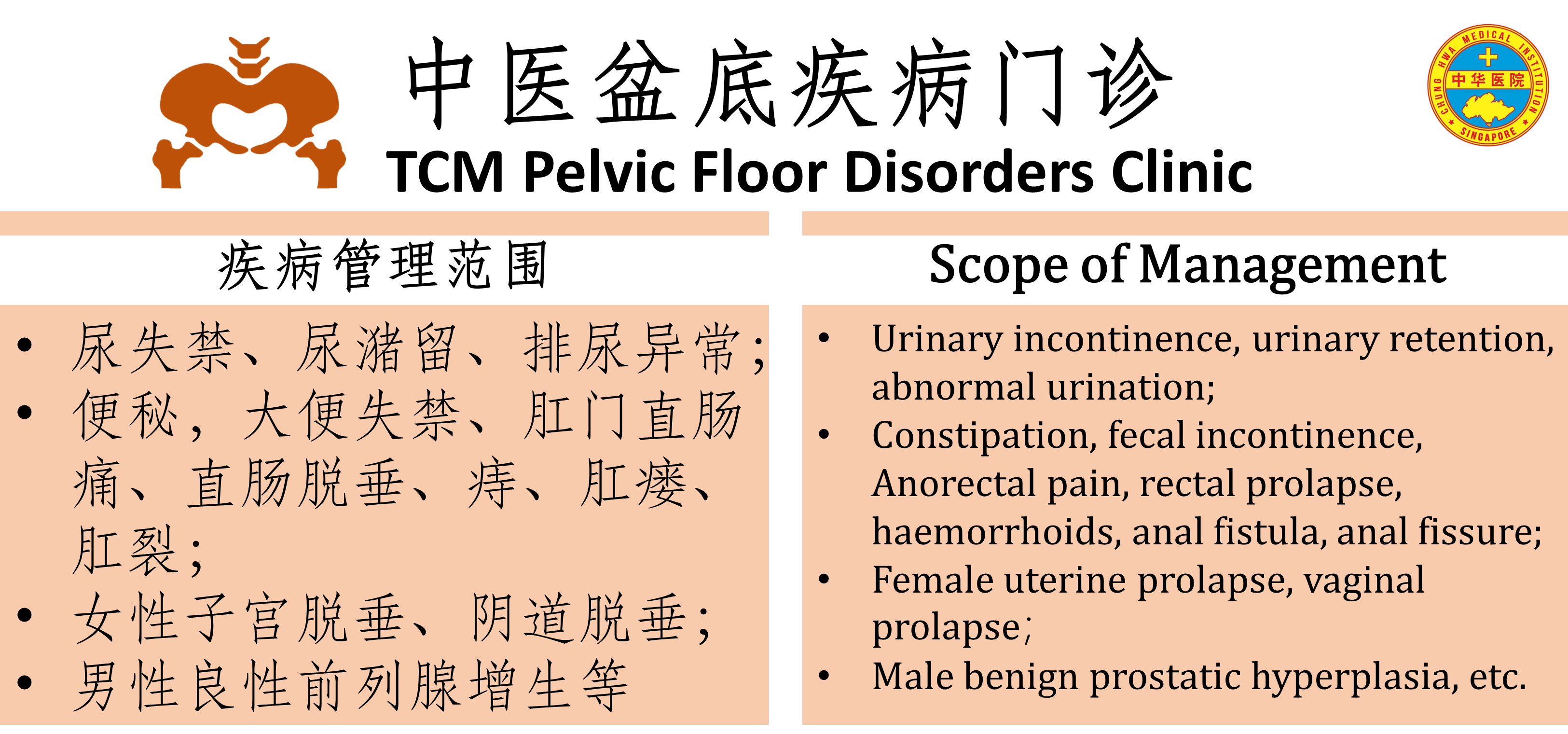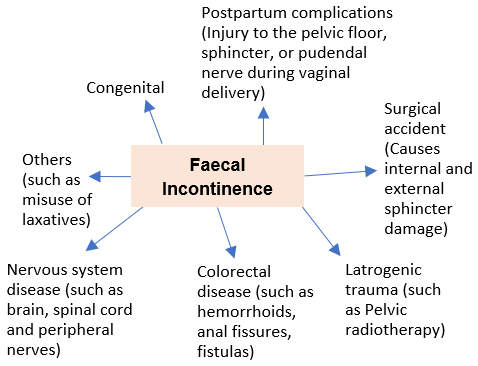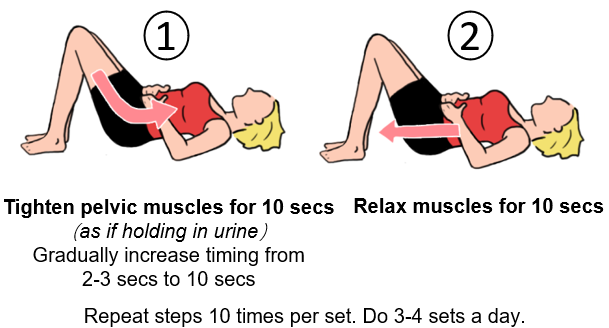
TCM Pelvic Floor Disorders Clinic Physicians and Consultation Hours (Toa Payoh, Woodlands, Marine Parade):
https://www.zhonghuayiyuan.com/services/time-schedule-ch/
Appointment Link:
https://office.zhonghuayiyuan.com/eAppointment_New/
TCM Pelvic Floor Disorders Clinic
As medical profession gradually understands and pays more attention to diseases caused by pelvic floor dysfunction, the number of patients who come to outpatient treatment for pelvic floor diseases has gradually increased. Singapore Chung Hwa Medical Institution has formally established a pelvic floor disease research group in 2019. In addition to serve the people to alleviate the suffering of patients, it also aims to study the causes and treatment of the disease in greater depth to improve the curative effect.
What are Pelvic Floor Disorders?
Pelvic floor disorders cover three main areas: Urology (anterior pelvis), Gynaecology (middle pelvis), and Colorectal (posterior pelvis) according to their anatomical location.
Anterior pelvic diseases (Urology): The urology mainly manifests as dysfunctional diseases, such as urinary incontinence, urinary retention, and abnormal urination.
Middle pelvic diseases (Obstetrics and Gynaecology): Gynaecological diseases account for the large proportion of the incidence of pelvic floor diseases. Anatomical structure abnormalities include uterine prolapse, vaginal prolapse; physiological activity disorders include stress urinary incontinence, urinary retention, abnormal urination, etc.
Urinary and Faecal Incontinence
Urinary incontinence refers to the involuntary flow of urine, especially when laughing, sneezing, coughing, or carrying heavy objects.

Benign Prostatic Hyperplasia
- Obstructive symptoms: such as small urine flow, unclean urination, dribbling after urination, intermittent urinary flow, and forceful urination.
- Irritating symptoms: including frequent urination (desire to urinate less than two hours after previous urinating), urgency (strong urination, even unable to hold back), nocturia, etc.
Kegel Exercise
Kegel exercise can prevent and treat vaginal prolapse in women, as well as men’s prostate pain, benign prostatic hyperplasia, swelling and prostatitis. It also helps to treat male and female urinary incontinence. Moreover, it can also increase sexual satisfaction and help reduce early-onset ejaculation.
Repeated Kegel exercise helps strengthen the pubococcygeus muscle, which is responsible for interrupting urine flow and retraction of the anus to stop defecation. Therefore, regular exercise can help to avoid urinary and faecal incontinence.
